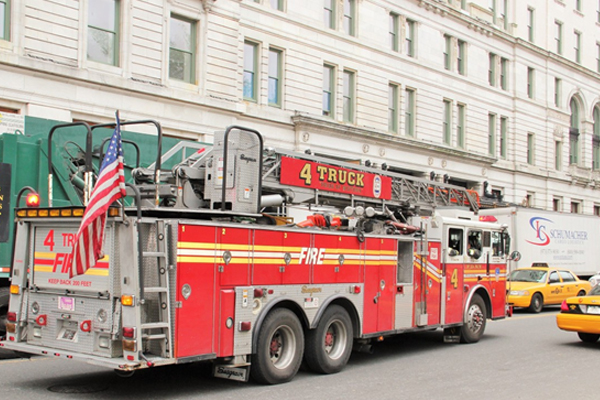NEW ILO GUIDELINES TO ENSURE DECENT WORK IN PUBLIC EMERGENCY SERVICES
|
NEW ILO GUIDELINES TO ENSURE DECENT WORK IN PUBLIC EMERGENCY SERVICES Experts adopt new guidelines to promote decent work in public emergency services, from better protection against the hazards emergency workers face to benefits in case of illness and work-related injuries. Experts meeting at the ILO have adopted Guidelines on Decent Work for Public Emergency Services’ workers that reflect the often extreme conditions they face amid increasingly frequent and complex emergencies. Police, fire fighting, emergency medical services, and search and rescue personnel are covered under the guidelines, as well as other services regularly called upon to respond in emergencies, such as armed forces, security and surveillance services, bomb disposal units, local governments, body-handling services, services responsible for the restoration of water and electricity supply, and related professions, such as social workers. “With climate change and associated disasters increasingly growing in their ferocity each day, it has become urgent to pay special attention to the working conditions of these everyday heroes,” said Dheepak Dhital, Permanent Representative of Nepal to the United Nations Office in Geneva, who chaired the meeting. During their weeklong meeting, the 24 experts – drawn from governments and employers and workers organizations – highlighted the wide range of disasters Public Emergency Services (PES) workers face, including epidemics, extreme weather events, industrial accidents conflicts and terrorist attacks. The guidelines, which will be submitted to the Governing Body of the ILO for approval, promote coherent measures for emergency preparedness and disaster prevention, access to social protection and effective labour inspection. “These guidelines will help the ILO, its constituents and its partners improve the safety and well-being of the women and men who daily take risks to save lives and respond to emergencies. Because this tool was developed through dialogue between governments, employers and workers, it provides realistic and practical guidance on addressing the many challenges public emergency workers face” said Alette van Leur, Director of the ILO’s Sectoral Policies Department . The document stresses that “changes in the economic, social and security environment in many regions have necessitated the enhancement of PES… This includes a comprehensive approach to the labour dimension of PES delivery and operations.” It points out that emergency workers often face major risks and work long, irregular hours. Among other measures, the guidelines call for: Measures to protect PES workers from excessive working time.
The guidelines also urge governments to ensure that the fundamental principles and rights at work are applied to all PES workers, and to take measures to eliminate child labour in PES, especially in armed forces engaged in emergency work, and to pursue policies that eliminate the use of compulsory labour in PES. The Guidelines further pay attention to the special situation of volunteers engaged in emergency response. The guidelines revise the 2003 Guidelines on Social Dialogue in Public Emergency Services and complement ILO Recommendation No. 205 that covers “all measures on employment and decent work taken in response to crisis situations arising from conflicts and disasters.” The Government experts who took part in the meeting are from the Brazil, France, Italy, Jordan, Peru, Philippines, Sierra Leone and Tunisia. “This is just a small step we can take: to bring it to our countries and to ensure that as we deal with disaster, we also deal with the people who are facing this…With this document, we hope that those people who are out there will be protected, and we will ensure that we have the proper measures to do this,” said Teresita S. Cucueco, vice-chair representing government experts. “What these guidelines will do is give practical assistance to countries, to organizations, to government departments about how they can make the best use of their emergency services, and to protect the people who actually work in those services – these people put their lives on the line, they deserve the respect and protection these guidelines can give,” said Paul Mackay, vice-chair representing employer experts. “We need such guidance to educate and motivate our members about their responsibilities in disaster preparation and response… With the provision of these guidelines, we can work with governments and PES employers to create a true enabling environment,” said David Boys, vice-chair representing worker experts. Source:http://www.ilo.org/global/about-the-ilo/newsroom/news/WCMS_626224 |



